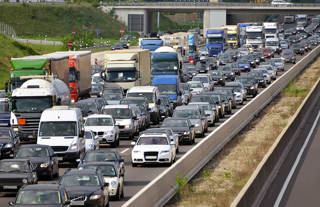Bristol City Council’s cabinet has discussed the creation of a clean air zone (CAZ) to ensure the city is meeting legal limits for levels of nitrogen dioxide.
The local authority is developing a Clean Air Action Plan, which could tackle air pollution through a wide range of measures such as more investment in public transport and cycling, changes in traffic management, greater use of existing regulatory powers such as taxi licensing as well as implementing a CAZ in the city.
Bristol City Council must undertake a feasibility study and identify options that would deliver compliance with legal limits for nitrogen dioxide in the shortest possible time.
A preferred option must be identified by the end of this year.
The council is working with a market research company to inform traffic models designed to see how effective a CAZ could be in changing drivers’ choices about the trips they make.
Cllr Kye Dudd, Cabinet Member for Energy, Waste and Regulatory Services, with responsibility for air quality, said: “Studies show that around 300 lives are lost each year due to poor air quality in the city, which comes mainly from road traffic, and in particular from diesel engines in cars, freight and buses.
“We’ve investigated the most effective ways of tackling harmful air pollution and are now in a position to share the best options from our technical studies.”
The options are based around either a small or medium-sized ‘Class C’ or ‘Class D’ charging clean air zone in the centre of the city, which would levy a charge for the use of buses and coaches, taxis and private hire vehicles, heavy and light goods vehicles, and potentially also private cars.
A fifth option to establish a non-charging clean air zone is also included among the options.
According to the city council, around 40% of NOx emissions in central Bristol are estimated to come from diesel cars, with 23% from diesel light goods vehicles and 22% from buses and coaches.
Further assessments of the five options will now be undertaken and are estimated to achieve compliance in 2023. The next stage of analysis will consider this in much more detail.
The strategic outline case, including these options, will be submitted to Government for their consideration.
Marvin Rees, Mayor of Bristol, said: “There is no single solution to our air pollution problem in Bristol so we must look at this issue from many different angles.
“My Mayoral Air Quality Working Group is currently developing integrated plans across transport and public health and we’re looking at the most effective ways to tackle harmful pollution levels.
“We haven’t waited for the Government directive to start thinking about ways to make the city a healthier place to live and work. Now we need to agree the right approach for Bristol, which fits with national policy and is fair for everyone travelling around our city and particularly does not have a detrimental impact on low income households”.
Over the coming months the city council will be seeking the views of residents, businesses, transport operators and others to help inform the selection of a preferred option which will then be subject to formal public consultation prior to any decision on implementation.
Further details on the charging classes being considered by Bristol City Council can be found here.
























Peter - 09/03/2018 11:16
So Bristol City Council has been forced into producing a Clean Air Plan by the end of the year. Perhaps they should consider how much congestion has been caused by BCC schemes like the still un-finished Metrobus scheme and the Temple Circus chaos. Time will tell whether these will eventually produce good results but in the mean time, let's not charge the motorist for the privilege of enduring daily delays.